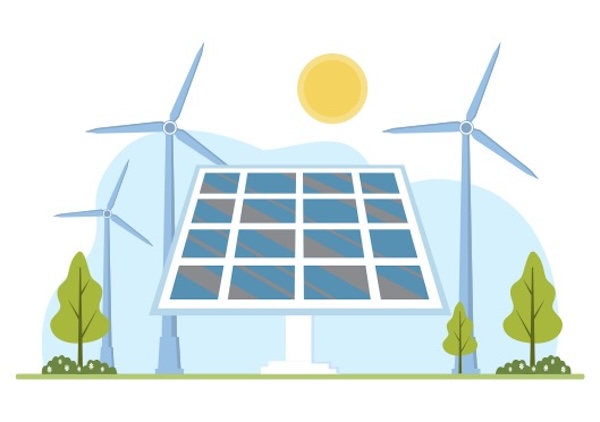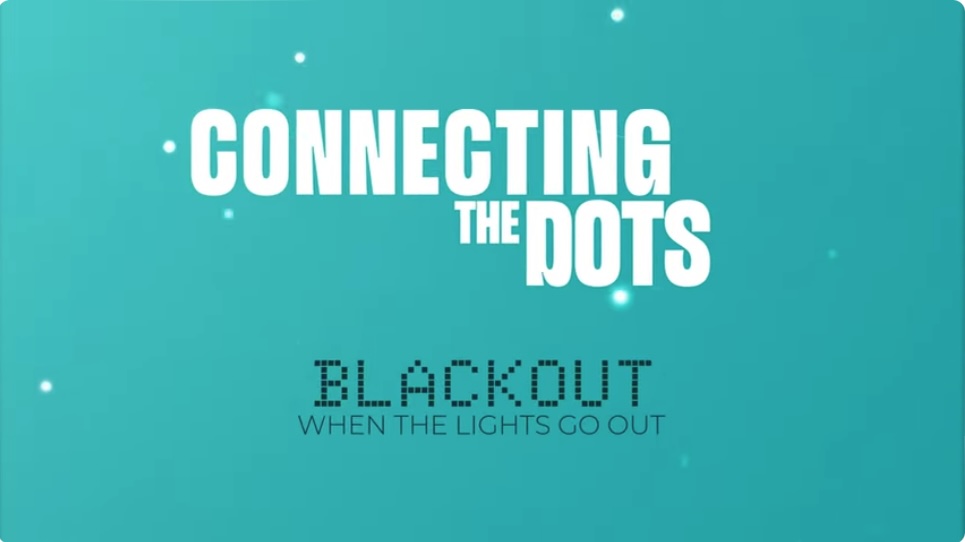Peña Solano, Country Head of Operational Management at Cellnex Telecom, recently joined the Board of Trustees of the Prevent Foundation.
As she explains in this interview, her participation in the Esade Alumni Social Governance Forum enhanced her perception and deepened her knowledge of the role of governing bodies in social organisations.
The need to relearn

You are currently the Country Head of Operational Management at Cellnex Telecom. What are the main challenges of this position?
As both a business manager and an individual, I believe the challenge we all face today is to protect our common home by ensuring sustainable development. Therefore, the current challenge is to lead the way and make the right decisions for change. Faced with the need to do things differently in today’s hostile and uncertain environment, I believe that we must take advantage of these circumstances in order to learn. The whole of society has to be truly involved in this change, with each of us taking responsibility for our own behaviour. Things will no longer be as they were before, nor will we be the same as a society. And, of course, we will have to relearn.
All of this justifies my current role, which requires me to consider how to behave in a way that makes us more efficient in our use of resources and become acquainted with tools that will allow us to achieve these efficiencies and improve time to market. In the environment we are operating in, which is a bit uncomfortable for most of us, we try to master the digital skills that we want to implement and share in the company. How? By providing support in a uniform and comprehensive way with regard to logistics and supply, and by providing documentation and quantitative and qualitative data on operations for management, so that they can analyse and redirect it and minimise risks for people.
The whole team seeks to act in a responsible way, both personally and professionally, so that decision-making drives change in such a way that together we can sustainably create value for society as a whole.
.
My current role requires me to consider how to behave in a way that makes us more efficient in our use of resources and become acquainted with tools that will allow us to achieve these efficiencies and improve time to market.
How would you define yourself as a manager?
I think it would be more appropriate for others to give their views on this. I would say, however, that what I set out to do every day is assist the people I work with and help all of us open our eyes and be much more human.
In order to be more productive, consistent and sustainable over time, I firmly believe that organisations need to ensure that people are better as a result of having worked for them: by increasing their employability, by developing key skills and by awakening new competencies. I am convinced that this leads to trust and commitment, which have a major impact on productivity and results.
We need to be convinced to put the best of ourselves at the service of society. We need our actions, both individual and collective, to be aligned with the profound change that is needed to turn the tide. The whole of society – together and involved.
I try to get younger people – who are a great generation, more prepared and better adapted – to want to contribute enthusiastically to building this new green and digital future, developing as people in their own line of work and influencing day-to-day change through their commitment. I try to include everyone and ensure that no one is left behind.
What milestones in your career have enabled you to occupy your current position?
I would say that my great enthusiasm, plus my desire to learn and enjoy everything, has enabled me to overcome the difficulties that have stood in my way, by always valuing their positive component. I learn from my mistakes. By looking ahead, I have been able to convert my various reinventions into opportunities.
The people I have appreciated the most in the course of my career – whether superiors or colleagues – are the ones who have given me confidence and from whom I have learned day after day.
Because of my personality, people have generally been quite willing to tell me what they think of me – and thanks to this, I have been able to grow.
I would add that forgiving those who have harmed or hurt me has allowed me to take something positive from every circumstance, thereby generating situations of personal and professional growth and enrichment.
At the service of society
Could you briefly describe your experience as an active member of the Esade Alumni community?
I have been collaborating for quite some time with Esade Alumni Social, which has been working for many years to build a fairer society and a more sustainable world. The main activity I have participated in is pro bono consulting work for organisations in the social ecosystem, trying to help make them stronger and more sustainable.
In both Madrid and Barcelona, I have had the opportunity to get to know the third sector through these projects with great flexibility. This has enriched me both personally and professionally, because I have learned about future trends and social innovations that are applicable to my work. I’ve been a part of a movement that wants to change things through a vision that goes beyond business profitability, and this has allowed me to see social imbalances up close and do my part to help.
I can see that you are interested in building a better future for society as a whole. What have you learned from your participation in the various social initiatives of Esade Alumni? What lessons have you learned that will benefit companies?
I have gotten to know organisations that are very flexible and have a very clear and robust mission, which means that people are able to develop at work, at home and in society – and that means developing a very high level of commitment. All this has enriched my knowledge and broadened my skills, especially reflection and acceptance. Working with multidisciplinary teams with a diverse range of backgrounds, realities and approaches has enriched me in ways that I consider essential to achieve common goals.
You have participated in the Esade Alumni Social Governance Forum. Why did you decide to take part in this sort of activity?
I am especially proud to have formed part of the first edition of the Governance Forum, which was planned with a great deal of enthusiasm but had the misfortune of being scheduled for late February 2020. Consequently, it did not have the impact it deserved.
After the impact that the COVID-19 crisis has had on society and on the actions of foundations, which created a context of complexity and uncertainty, the Governance Forum strengthened my perception and deepened my knowledge of the role of governing bodies in social organisations. It also prompted me to put myself at the service of society with my maximum potential and consider taking on the challenge of joining such a body.
The Governance Forum strengthened my perception and deepened my knowledge of the role of governing bodies in social organisations. It also prompted me to put myself at the service of society.
After participating in the Governance Forum, you ended up joining a board of trustees. What does serving on the board of trustees of the Prevent Foundation mean to you? What role do you play on that board?
I joined the board only recently, so I have not had time to define my role. However, I have been collaborating with the Prevent Foundation for some time now. I have closely followed its magnificent work in promoting and fostering the inclusion of people with disabilities in the workplace. I have learned a lot and come to understand that we all improve from the inclusion of people with disabilities. I am very grateful for this, and so with great respect and great enthusiasm I accepted the commitment to join the board. I think it is very important to share values in order to act transparently and ethically, in accordance with codes of conduct, and thus help to achieve the foundation’s goals by managing its assets and guaranteeing sustainability over time.
In your experience, what are the keys to good governance in both social organisations and companies? Are there any parallels?
n my opinion, being sustainable means managing the risks that threaten the future. You have to anticipate these risks in order to build a future that is not only viable but better. Therefore, companies and third-sector institutions should focus on what they do best, which is creating value by solving problems – but this value must be shared with stakeholders. The keys to good governance involve appropriate shareholder-trustee relations, diverse management subject to evaluation, effective control systems and freedom from conflicts of interest. The current focus is on ESG criteria – environmental, social and governance. Through these criteria, the aim is to be a more complete person, in a more humanistic way. Humanistic leadership is about trusting others, being ethical, having compassion and participating as a collective whole. A humanistic leadership system must have a vision, a mission, values, and clear and well-aligned expectations of behaviour. In my view, the same goes for companies and for social organisations.
Do you have any advice or messages for alumni who are thinking about taking a similar step of commitment and social contribution?
To anyone considering taking this step, I would say: go for it. As I mentioned earlier, sustainability requires leaders – real leaders – to act in a purpose-driven manner in the best interests of all concerned. Their ambition will take them beyond operational matters to address the entire value chain and ultimately influence the system. And there is no better way to start than by joining a project like Alumni Social, because it combines social responsibility with the aim of giving something back to society, with a focus on closing the gaps often caused by lack of access to resources, which nowadays are a key factor in social integration and personal progress. Our actions impact lives. What we do, and how we do it, matters. So let’s work to help create a resilient world by generating long-lasting, sustainable value. To do that, you need to have a plan to manage, guarantee and measure your responsible impact, not only on the planet, but also on society and on those close to you. Alumni Social has helped me do this.
Is there anything else you would like to share with us?
Last weekend, I was with a group of women who were talking and reflecting on female leadership. We concluded that the main skill you need is self-awareness. If you are not a virtuous person who knows how to lead your own life, how can you lead others? So you have to reconcile your personal, family and professional lives – in other words, you have to integrate your life. The key to understanding true leadership is to ask yourself: Who is my work in service of? The servant leader focuses her energy on a mission and on her team. She does not seek to concentrate and wield power for her own interest. I believe that this approach is practised and followed in Alumni Social, and in in all Esade Alumni activities generally. We support each other and work for our community, as well as for a better world.

































